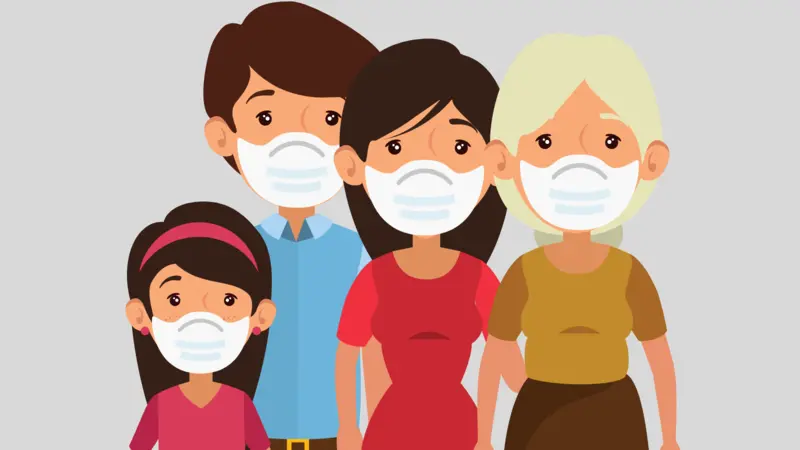

COVID-19

COVID-19
Face Masks Found to be Ineffective
In the most definitive study to date on whether masks are effective for reducing the spread of respiratory viruses, a new review published by the Cochrane Library, a medical database known for its high-quality evidence reviews, found that masks—whether cloth, surgical, or N95 respirators—do not show clear benefit for reducing the spread of COVID-19 or other respiratory viruses.
The review included 78 randomized controlled trials (RCTs) and cluster RCTs. The studies were conducted in settings ranging from suburban schools to hospital wards in high‐income countries; crowded inner city settings in low‐income countries; and an immigrant neighborhood in a high‐income country.
The researchers found that “wearing a mask may make little to no difference in how many people caught a flu‐like illness/COVID‐like illness” and “probably makes little or no difference in how many people have flu/COVID confirmed by a laboratory test.” They also found no clear differences between the use of medical/surgical masks compared with N95/P2 respirators, which are considered the most effective type of mask at filtering airborne particles.
The researchers also compared hand hygiene to a control group and found that hand hygiene may be beneficial, reducing respiratory illness by 11%.
Firm conclusions were not drawn due to high risk of bias in the trials and relatively low adherence with the interventions during the studies, and there is still a need for large, well‐designed RCTs to study the effectiveness of masks in multiple settings and populations. However, the current data did not show a clear benefit to mask wearing, compared with hand hygiene, which likely reduces the chances of respiratory illness.
The benefits of masking remain elusive, and given the potential negative consequences of masks, particularly for children’s education and health (e.g., hindering learning, language, speech recognition and development, communication, emotional recognition), hand washing may be a more effective tool to ward off infection.
REFERENCES
Jefferson, T. (2023, January 30). Physical interventions to interrupt or reduce the spread of respiratory viruses. Cochrane Database of Systematic Reviews. https://www.cochranelibrary.com/cdsr/doi/10.1002/14651858.CD006207.pub6/full


 By
By



